A radical Sheffield woman shares her memories of the People's Republic
and live on Freeview channel 276
Two words which stand out for former Sheffield councillor and MP Helen Jackson as she recalls the heady days of local government in the 1970s and ’80s.
Sheffield was leading the way with radical policies like 10p bus fares and a minimum wage.
Advertisement
Hide AdAdvertisement
Hide AdAll of which earned it the nickname People’s Republic of South Yorkshire. A term of derision if you were a Conservative, fond recollection if you are Helen.
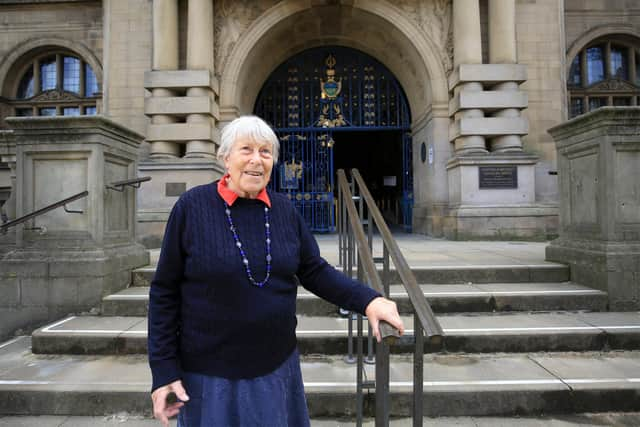

Which is why she’s used the nickname as the title for her memoir of the time before she went on to become MP for Hillsborough.
“I’m a radical,” Helen says as we meet.
She opens her notebook which lists the things she wants to talk about. Radical is prominent.
She was in good company. David Blunkett. Clive Betts, Peter Price. Names which still ring loud in the Sheffield political scene.
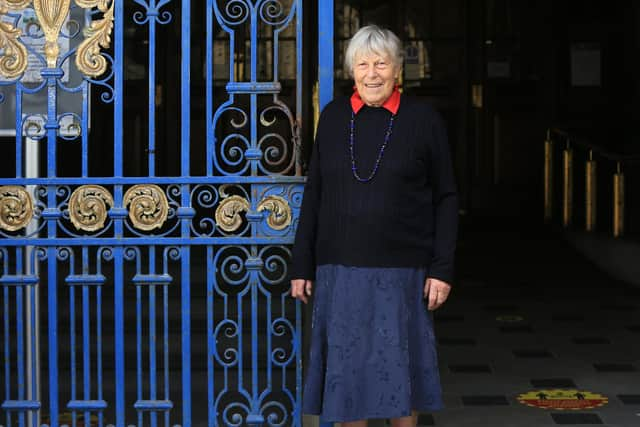

Advertisement
Hide AdAdvertisement
Hide AdLed by future Home Secretary David Blunkett, Sheffield Council opposed the Conservative domination of the national government with a series of radical socialist policies.
Subsidised public transport was practical, signing a peace treaty with Donetsk in the USSR and flying the red flag above the town hall was symbolic.
“What I was struck with looking back and talking to people is how often we were in front of the curve,” says Helen, now 82, a mother of three and grandmother of nine.
“The radical mind we were very early in establishing. A low pay solution, our minimum wage, we were the first.
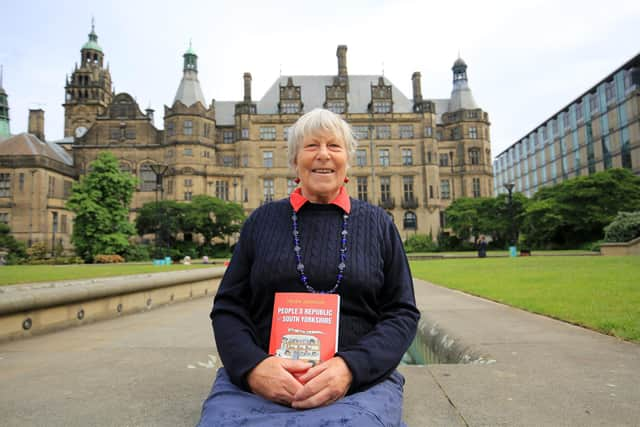

Advertisement
Hide AdAdvertisement
Hide Ad“We introduced it for council workers based on statistical analysis of people working for the council.
“There was shock horror at the conditions and inadequacies for low paid manual workers. It shook the establishment in such a way that we started talking about a low pay solution.”
It was the early 1980s and the idea of a minimum wage was not welcomed by the Trade Unions which thought it would undermine negotiating rights.
“What Sheffield did was to host a national low pay conference in 1982 and out of that came a huge debate at the TUC and key players changed their minds and started talking about it.
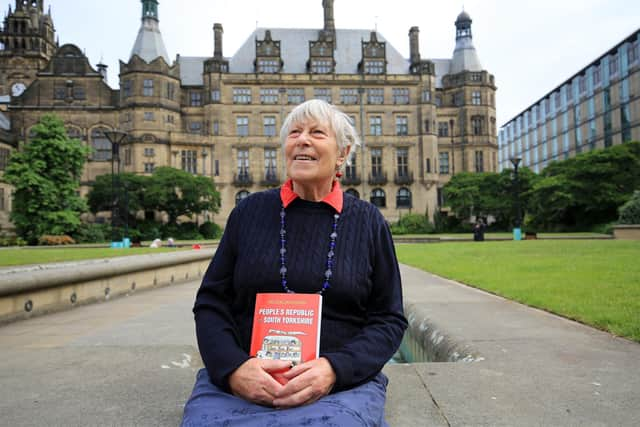

Advertisement
Hide AdAdvertisement
Hide Ad“I think we were ahead of the curve on that. The Labour government introduced it in 1997.
“We were pretty bold in trying out new ideas that would be of real benefit.”
Take 10 is another initiative she remembers fondly which started in the council in 1982. “Once you crack the establishment of the council you can go wider.
“Take 10 was time off with pay for educational leave, targeting the lowest paid and those who had left school aged 16.”
Advertisement
Hide AdAdvertisement
Hide AdIn partnership with the Northern College, 2,000 people benefited from a residential course.
“Politicians forget that it’s the manner of doing something, the way you recruit individuals and this was done through tutors who found women, people from ethnic minorities and those who had left school at 16 without taking many exams.
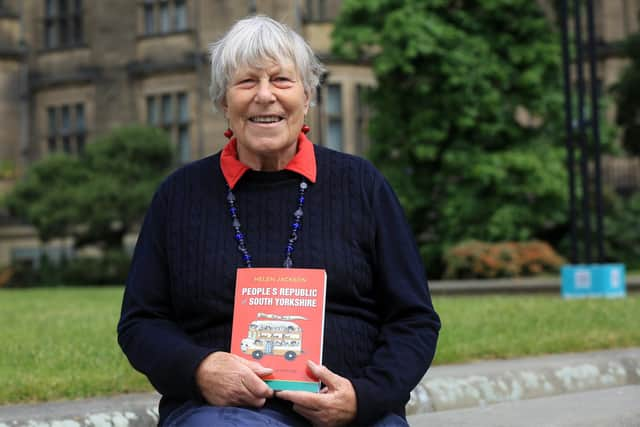

“Referrals were made by thoughtful interviews, not just throwing money at at something, but thinking about how you can make real change.
“That I hope is a thread that runs through the book. What we did was effective.”
Advertisement
Hide AdAdvertisement
Hide AdHer theory is this. “What we did in the council, you could then do in the city because we were confident it made a difference.”
Things like women-only technology training centres, young people technology training centres. Grants were given where training worked. Radical questions were asked such as what kind of child care do you need?
But it got success. Gwenda’s Garage is one such success, where a small grant was given so three women could set up as mechanics. They also gave classes and a business was born.
The book also features people Helen worked with and who inspired her.
Advertisement
Hide AdAdvertisement
Hide AdJoan Maynard, who became MP for Brightside, gets an early mention for her strength of personality.
She got the seat after a bruising battle with MP Eddie Griffiths who was de-selected by Labour after stories emerged about him playing golf with Tory MPs which put off voters.
Griffiths stood as Independent Labour. Joan took him on.
“She was an unusual radical because she did her politics mainly through a union and not one you would associate with Sheffield, the Agricultural Workers Union.
“Through that and strength of personality not only was she selected as the Labour candidate, she won against the established candidate. It shook the Labour party.”
Advertisement
Hide AdAdvertisement
Hide AdThe book has a forward written by David Blunkett, who Helen describes as driven.
“I couldn’t help but be aware of how he battled his disability to do what he did. It wasn’t the obvious advice given to him by the Institute for the Blind.
“He was driven by the same frustration women were feeling so there’s something about David that recognises that type of frustration, when you know you can do something but don’t get recognised. I sometimes tease him by calling him a feminist.”
And then there’s Peter Price, who is still going strong in his 80s, representing Brightside and Shiregreen. “He’s incredible, he keeps going and if he’s got any spare time he goes litter picking.
Advertisement
Hide AdAdvertisement
Hide Ad“He’s strong, been blessed with good health and he’s driven, but there’s a soft side.
“There’s something about Peter that drives him on to do radical things, it drove the collective nature of what we did. He was the cement that kept us close together, the spirit of togetherness.”
And if there’s one thing they did that everyone members, it’s the cheap bus fares.
“It was a very good idea because economically it opened up the labour market not just in Sheffield but in South Yorkshire.
Advertisement
Hide AdAdvertisement
Hide Ad“After it ended, the buses got old and scruffy. What we were able to do because of an increase in passengers was to establish a relationship with British Leyland for a regular order of new buses and that stopped almost immediately when fares went up.
“Who knows what will happen with new modes of transport? The key word is cheap, that’s what made the difference, not just the fact there were lots of buses, but lots of affordable buses.
“If you can get something everyone can afford then you get a popular collective travelling around. It doesn’t matter if it’s buses or trains, travel has a social good. I do like buses and trains and travel - it is a collective way of seeing loved ones.”
And Helen, who lives in Grenoside, is true to her word, arriving for our interview by tram.
Advertisement
Hide AdAdvertisement
Hide AdThe period she writes about saw women come to the fore and feminism was a hot topic of debate. Helen is keen to point out: “Some of the best feminists are men.”
She adds: “If the beneficiaries of policy are mainly women, it’s a good guide for everyone. It raises an equality issue and rolls into issues such as Black Lives Matter because we share being the lowest paid and least well off.”
A story which sums up the attitudes women faced but still makes Helen smile is when she was made chair of the Works Committee.
“The managing director couldn’t get his mouth round what to call me. Madam chair? I asked him what he called my predecessor. He said John. So I suggested Helen, but he shook his head and said ‘I couldn’t do that.’ Another chap called me Mother Chair! It still makes me smile.”
Advertisement
Hide AdAdvertisement
Hide AdSo what does she hope the book will do? “I’d like to take some credit for finishing a story that needed to be told - the radical and progressive nature of what we did against the odds because that makes it.”
Helen is still hoping for radical change in 2021 and thinks mayors might hold the key.
“There are two factors that are forcing people to look wider than national boundaries, the global pandemic and the global nature of climate change.
“You often find in poorer countries, the best way is to work through regional mayors because they know the specific problem you’re trying to help and the money is more likely to get used for that purpose.
Advertisement
Hide AdAdvertisement
Hide Ad“Dan Jarvis is a position where he can make a difference and I hope very much he will.”
As for councils, they face changing times, says Helen. “Thatcher did away with their control and it has never been the same since.”
A report into planning and housing from a select committee chaired by Clive Betts could bring about more radical change. Sheffield politicians being radical and progressive again.
Whatever happens, Helen’s book will stand as a testimony to remarkable times.
Advertisement
Hide AdAdvertisement
Hide AdShe says: “Once I started writing the book I couldn’t stop but I couldn’t have done it for as long as I did without the support of people.
“I hope the outcome is that people read it. It’s got lots of mistakes in it but I’m not telling you what they are. Have a look at the next edition!”
People’s Republic of South Yorkshire: A Political Memoir 1970-1992 is published by Spokesman and costs £12.99
https://spokesmanbooks.org/product/peoples-republic-of-south-yorkshire/